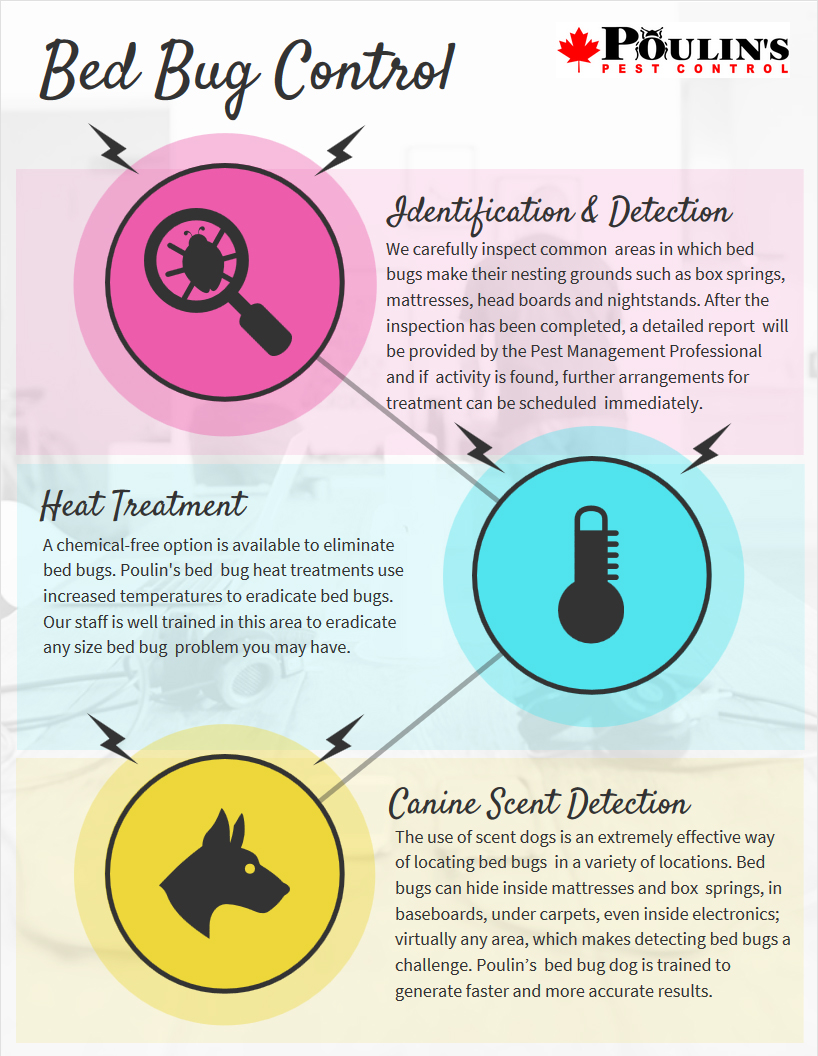Expert Kings Pest Control Services Cincinnati OH
Expert Kings Pest Control Services Cincinnati OH
Blog Article
Types of Parasite Control: Which Technique Is Right for Your Infestation?
When encountered with a parasite infestation, the option of an appropriate method for pest control is vital in efficiently taking care of the scenario. By checking out the various types of parasite control approaches available, people can make informed choices tailored to their one-of-a-kind circumstances, guaranteeing a much more reliable and lasting result in bug elimination.
Chemical Pest Control
Chemical parasite control involves the use of artificial or naturally acquired chemicals to manage and eradicate pest populations successfully. This approach is generally utilized in agriculture, forestry, and residential setups to battle a vast array of insects, consisting of weeds, bugs, and rodents. The use of chemical pesticides can supply quick and targeted remedies to pest problems, making it a prominent selection for several people and services.
One of the vital advantages of chemical pest control is its capacity to swiftly remove insects, reducing the risk of damages to plants, building, and human wellness. By making use of specific chemicals that target certain parasites, this technique can properly control problems while decreasing injury to advantageous organisms and the atmosphere when used properly.
However, using chemical parasite control additionally elevates concerns regarding potential negative impacts on non-target types, water sources, and human wellness. It is critical to comply with safety standards, use chemicals responsibly, and consider different pest control approaches to reduce these threats and ensure sustainable pest management methods.
Biological Parasite Control
Organic bug control, additionally recognized as biocontrol, utilizes living organisms to handle and minimize parasite populations normally. This method harnesses the power of nature to regulate parasites without the requirement for artificial chemicals. Biocontrol can include the intro of all-natural adversaries of the insect varieties, such as bloodsuckers, predators, or virus, to suppress pest populaces. By utilizing the bug's all-natural killers or microorganisms, biological parasite control offers a eco-friendly and sustainable remedy to pest management.

Mechanical Parasite Control
Using hand-operated and physical methods to handle pest populaces, mechanical insect control offers an alternative approach that does not rely upon using living microorganisms or synthetic chemicals. This approach includes using obstacles, traps, or other gadgets to literally discourage or get rid of insects. By obstructing parasite access points or setting up catches to capture them, mechanical parasite control can efficiently reduce problems without presenting chemicals right into the atmosphere.
One typical instance of mechanical insect control is the use of mesh screens on windows and doors to stop insects from going into buildings. This simple yet reliable approach serves as a physical obstacle, maintaining pests out while permitting appropriate air flow. Furthermore, tools like mousetraps, fly swatters, and ultrasonic repellents drop under the mechanical parasite control category.
While mechanical bug control approaches can be labor-intensive and need routine surveillance and upkeep, they supply a eco friendly and lasting solution for taking care of pest infestations. By combining various mechanical methods, homeowner can create an extensive pest control method that lessens dependence on chemical pesticides.
Physical Bug Control

Some usual physical parasite control methods include making use of obstacles such as displays or webs to avoid insect entry, traps to capture and remove bugs, and hand-picking to physically eliminate bugs from plants or structures. Furthermore, techniques like heat treatments can be made use of to manage pests like bed bugs by raising the temperature to degrees that are dangerous to the insects.
Physical insect control is specifically useful in incorporated bug administration (IPM) techniques, where multiple insect control approaches are integrated for reliable bug management while reducing making use of chemicals. By making use of physical pest control strategies, individuals can successfully attend to insect invasions with very little ecological effect.
Integrated Parasite Management
When applying physical insect control approaches as component of insect administration strategies, Integrated Insect Management (IPM) becomes a comprehensive approach that leverages numerous techniques to efficiently regulate pest populations. IPM concentrates on long-term avoidance of insects through a mix of organic, social, physical, and chemical tools tailored to details parasite issues. By integrating multiple control methods, IPM aims to decrease the dangers connected with bugs while likewise reducing reliance on chemical options.
One key aspect of IPM is the emphasis on surveillance and evaluating pest populaces to identify one of the most proper control techniques. This aggressive approach enables early intervention and targeted strategies, leading to a lot more reliable pest administration. Furthermore, IPM promotes ecologically pleasant methods by prioritizing non-chemical control techniques and just using chemicals as a last hope.
Conclusion

By making use of the bug's all-natural killers or virus, organic insect control provides a environmentally friendly and sustainable option to pest administration. - Kings pest control services Cincinnati oh
Utilizing manual and physical techniques to handle bug populations, mechanical pest control uses an alternate strategy that does not depend on the usage of living microorganisms or synthetic chemicals.An effective technique to managing pest check my blog populations without counting on chemical or biological methods involves the use of physical pest control methods.When executing physical parasite control techniques as part of bug management approaches, Integrated Pest Monitoring (IPM) emerges as an extensive approach that leverages different methods to effectively regulate pest populaces. Chemical bug control includes the use of pesticides, organic parasite control makes use of natural predators, mechanical pest control includes physical barriers, physical parasite control includes capturing or eliminating pests, and integrated insect monitoring combines several methods for an all natural technique to pest control.
Report this page